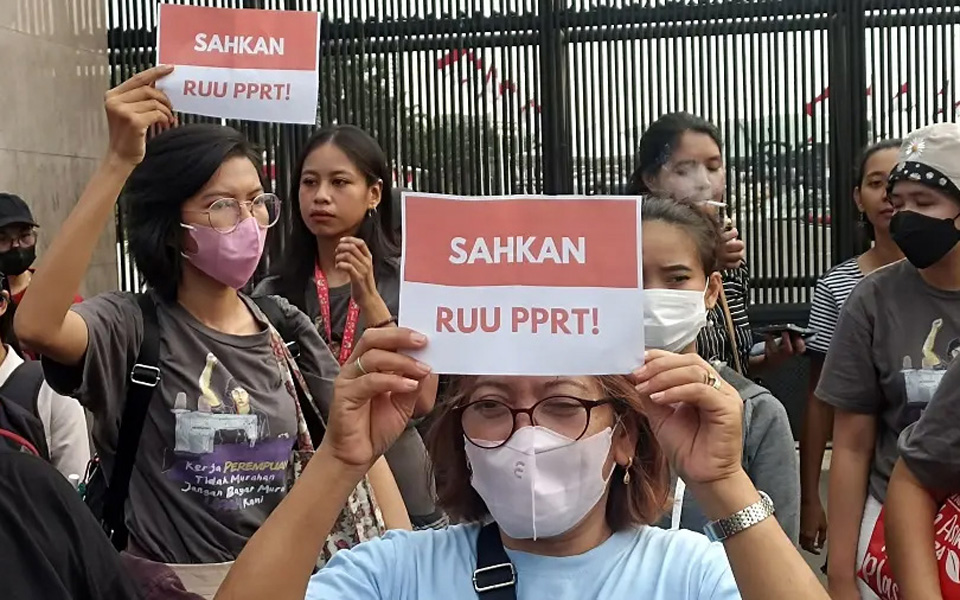Jakarta – The Indonesian Ulama Council (MUI) and a number of Islamic mass organisations oppose attempts to ban female circumcision by any groups on the grounds that it represents a religious teaching, the implementation of which is a human right protected by the Indonesian constitution.
“The procedures for performing female circumcision according to Islamic teachings are adequate by only removing the membrane covering the clitoris. Islamic teachings prohibit circumcision practices that are excessive, such as cutting or injuring the clitoris which could be dangerous”, said MUI chairperson Dr KH Ma’ruf Amin at the MUI building in Jakarta on Monday January 21.
Amin said that the MUI does not make female circumcision compulsory or non-compulsory, but rather is opposing a ban on circumcision for women. He said that the MUI has already issued a fatwa (religious edict) stating that circumcision for women is “an honour” or religious act that is encouraged. According to Amin, not one ulama (Islamic scholar or leader) has forbidden circumcision for women so all hospitals in Indonesia must service requests for the procedure.
“Circumcision is part of Islamic religious teachings and is included as part of religious worship, which is strongly recommended for the Islamic community both males as well as females. The MUI and Islamic mass organisations explicitly oppose prohibitions of female circumcision by the government or any other party”, said MUI Deputy General Secretary Dr Amirsyah Tambunan.
Tambunan said that Ministry of Health Regulation Number 1636/MENKES/PER/XI/2010 on Female Circumcision is in accordance with the mandate of the 1945 Constitution, the MUI edict and the wishes of the Islamic community. Because of this therefore, the MUI and Islamic mass organisations support the health ministry’s regulation.
The MUI is calling on the government not to heed attempts by any parties or groups that are seeking a prohibition on female circumcision in Indonesia because it conflicts with Islamic teachings, the mandate of the 1945 Constitution and human rights.
“The MUI is urging the central and regional governments, the health ministry and health offices, organisations of the medical profession as well as healthcare workers, and Islamic mass organisations to socialise the health ministry’s regulation on female circumcision as a guide for healthcare workers to provide circumcision services for female Muslims in Indonesia”, he said.
Tambunan also said that these parties must formulate standard operational procedures on female circumcision and make it part of the content material in the educational curriculum for doctors and other healthcare professionals.
The MUI is also appealing to the Indonesian Islamic community to remain calm and not be influenced by erroneous efforts to shape public opinion on female circumcisions that is being carried out by certain parties.
MUI Edict Commission Secretary Asrorun Niam Soleh said that support for and opposition against female circumcision has been banded about since 2002. According to Soleh, several parties have prohibited female circumcision, including among others the Convention on the Elimination of All Forms of Discrimination Against Women (CEDAW) Committee, which believes that female circumcision is a form or genital mutilation.
“Even the American Medical Association believes that circumcision of males as well as females is mutilation”, said Soleh. Soleh is concerned that efforts by the parties to ban female circumcision will influence the position of the ministry of health’s 2010 regulation on female circumcision.
Notes
In December last year the United Nations adopted a resolution urging member states to ban female genital mutilation, which would compel the Indonesian government to revoke a Health Ministry regulation issued in 2010 that condones female circumcision. Indonesia is also a signatory to the CEDAW.
[MUI Tolak Upaya Pelarangan Khitan Perempuan – Kompas.com. Senin, 21 Januari 2013. Translated by James Balowski.]















